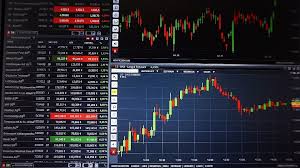Mastering Forex Trading Practice Tips and Strategies 1638715579

Mastering Forex Trading Practice: Tips and Strategies
Forex trading is a dynamic and increasingly popular way of investing money and growing wealth. With the rise of the internet, anyone with a computer can access the forex market, making it an appealing option for many. However, mastering forex trading requires extensive practice and understanding of the market’s complexities. This article will provide valuable insights and strategies to enhance your trading practice, helping you to navigate this challenging yet rewarding landscape. For more in-depth analysis and resources tailored for traders, visit forex trading practice Qatar Brokers.
Understanding Forex Trading
Forex, short for foreign exchange, involves trading one currency for another in the hope of making a profit. Currency pairs, such as EUR/USD or GBP/JPY, indicate how much of the second currency you need to acquire one unit of the first currency. This trading takes place in a 24-hour market, which allows traders to react swiftly to economic news and other developments that can impact currency values.
The Importance of Education
Before diving into forex trading, it’s crucial to educate yourself about the market. This includes understanding various trading strategies, technical and fundamental analysis, and risk management techniques. Utilize online resources, books, webinars, and courses to build a solid foundation. Consider practicing with a demo account to gain experience without financial risk. A demo account allows you to simulate trading conditions and test your strategies in real market scenarios.
Developing a Trading Plan
A trading plan is an essential tool for any trader. It should outline your trading goals, risk tolerance, strategies, and specific criteria for entering and exiting trades. Having a clear plan helps you avoid impulsive decisions driven by emotions, which can often lead to losses. Your plan should also include a risk assessment and management strategy, detailing how much of your total capital you are willing to risk on each trade. A disciplined approach adhering to your trading plan can significantly enhance your overall trading performance.
Utilizing Technical Analysis
Technical analysis involves analyzing historical price data to predict future price movements. It relies on charts and indicators to identify trends, support and resistance levels, and potential reversal points. Common tools include moving averages, Bollinger Bands, and Relative Strength Index (RSI). Mastering technical analysis can provide you with insights into market conditions and improve your decision-making process when entering trades.
Understanding Fundamental Analysis

Fundamental analysis focuses on economics, interest rates, inflation, and other factors that can affect currency values. Economic indicators, such as GDP growth, unemployment rates, and inflation data, offer valuable insights into a country’s financial health, influencing currency performance. Staying informed about geopolitical events and market sentiment can also help you anticipate currency movements.
Emphasizing Risk Management
Effective risk management is one of the most critical aspects of successful forex trading. It’s essential to determine how much of your capital you are willing to risk on each trade; a common guideline is to risk only 1-2% of your total trading capital on a single trade. This practice helps you endure market fluctuations and protects your overall investment from significant losses. Moreover, utilizing stop-loss orders is a crucial risk management tool that automatically closes your position at a predetermined price, preventing further losses.
Keeping a Trading Journal
Documenting your trades in a trading journal can provide insights into your performance and areas for improvement. Recording details such as your entry and exit points, the rationale behind each trade, and the outcome can help you identify patterns and refine your strategies. Analyzing your past trades can help you understand your strengths and weaknesses, making adjustments to your future trading practices.
Staying Emotionally Balanced
Trading can be a rollercoaster of emotions—elation during winning trades and frustration during losses. It’s crucial to maintain emotional balance to make rational trading decisions. Practice mindfulness techniques or develop a routine that keeps you calm and focused. Avoid trading when you’re feeling overly emotional or after a significant loss, as this could lead to impulsive and irrational decisions.
Continuously Learning and Adapting
The forex market is continuously evolving, with new trends emerging constantly. Successful traders stay informed about market developments, economic reports, and geopolitical events that can impact currency fluctuations. Engage with trading communities, attend webinars, and follow industry leaders to stay updated. Adapt your strategies as needed and be open to refining your approach based on the new knowledge you acquire.
Conclusion
Mastering forex trading practice takes time, dedication, and a commitment to continuous learning and improvement. By educating yourself, developing a robust trading plan, employing effective risk management techniques, and maintaining emotional balance, you can enhance your trading skills and improve your chances of success. Remember, the journey to becoming a successful forex trader is a marathon, not a sprint. Stay patient, stick to your plan, and continuously seek ways to improve your craft.

